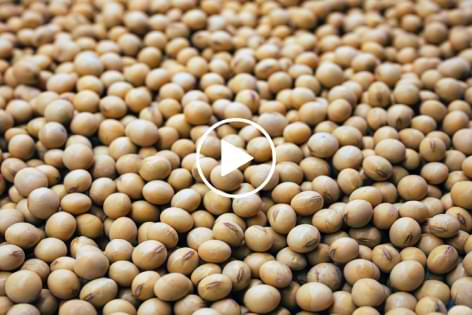
LMU 90 – The Health Benefits of Substituting Soy Protein for Animal Protein
Source: Sports and Exercise Nutrition (Textbook fourth edition – 2013)
Lifestyle Medicine Update (May 19, 2018)
Introduction:
In the last century, dietary habits in North America and many developed regions have evolved significantly. Historically, protein intake was evenly split between animal and plant sources. However, modern diets now consist of two-thirds animal-based proteins. While these animal proteins provide essential amino acids vital for bodily functions, they also often come with a downside: saturated fats, linked to heart diseases and certain cancers. This article explores the consequences of this dietary shift and introduces soy protein as a promising alternative. Soy, found in products like tofu and miso, offers all essential amino acids while potentially improving heart health and reducing cancer risk.
The Protein Dilemma:
- Animal-based protein offers optimal concentrations of essential amino acids for key bodily protein synthesis.
- However, many animal products are high in saturated fats, increasing the risk of heart diseases and certain cancers.
- Animal foods lack protective phytonutrients, leaving us vulnerable to various health threats.
- Combining plant foods like grains and legumes can provide all essential amino acids.
- Soy protein, derived from soybeans, stands out as the only plant-based source containing all required amino acids.
The Benefits of Soy Protein:
- Substituting soy protein for animal protein has shown health benefits in controlled clinical trials.
- It reduces blood pressure, triglycerides, total cholesterol, and oxidized LDL-cholesterol.
- Soy protein raises HDL-cholesterol, promoting the removal of artery-clogging cholesterol.
- It lowers blood homocysteine levels, reducing the risk of heart attacks and strokes.
- Higher soy consumption is linked to the prevention of prostate and breast cancer, and breast cancer recurrence.
- Isoflavones and protease inhibitors in soy are key anti-cancer agents.
Health Strategies:
- Cut back on high-fat animal foods (except omega-3-containing fish).
- Eliminate deep-fried, breaded, and battered foods, as well as creamy salad dressings.
- Opt for skinless chicken breast, turkey breast, Cornish hen, egg whites, and low-fat dairy.
- Incorporate soy foods like tofu, soy-based veggie products, miso, tempeh, and edamame.
- Consider soy protein shakes to increase protein intake if necessary.
- Textured vegetable protein can replace meat in various dishes like sauces and lasagnas.
Substituting soy products for animal products is a simple yet effective way to maintain ideal cholesterol levels and reduce the risk factors for heart disease. Numerous clinical trials support the health benefits of this dietary shift.
References
- Sasaki A, Nagatake T, Egami R et al. Obesity suppresses cell-competition-mediated apical elimination of RasV-12-transformed cells from epithelial tissues. Cell Reports, vol 23, issue 4. P:974-982. April 2018. [DOI]
https://www.cell.com/cell-reports/fulltext/S2211-1247(18)30480-7
Dr. Meschino
Introduction:
In the last century, dietary habits in North America and many developed regions have evolved significantly. Historically, protein intake was evenly split between animal and plant sources. However, modern diets now consist of two-thirds animal-based proteins. While these animal proteins provide essential amino acids vital for bodily functions, they also often come with a downside: saturated fats, linked to heart diseases and certain cancers. This article explores the consequences of this dietary shift and introduces soy protein as a promising alternative. Soy, found in products like tofu and miso, offers all essential amino acids while potentially improving heart health and reducing cancer risk.
The Protein Dilemma:
- Animal-based protein offers optimal concentrations of essential amino acids for key bodily protein synthesis.
- However, many animal products are high in saturated fats, increasing the risk of heart diseases and certain cancers.
- Animal foods lack protective phytonutrients, leaving us vulnerable to various health threats.
- Combining plant foods like grains and legumes can provide all essential amino acids.
- Soy protein, derived from soybeans, stands out as the only plant-based source containing all required amino acids.
The Benefits of Soy Protein:
- Substituting soy protein for animal protein has shown health benefits in controlled clinical trials.
- It reduces blood pressure, triglycerides, total cholesterol, and oxidized LDL-cholesterol.
- Soy protein raises HDL-cholesterol, promoting the removal of artery-clogging cholesterol.
- It lowers blood homocysteine levels, reducing the risk of heart attacks and strokes.
- Higher soy consumption is linked to the prevention of prostate and breast cancer, and breast cancer recurrence.
- Isoflavones and protease inhibitors in soy are key anti-cancer agents.
Health Strategies:
- Cut back on high-fat animal foods (except omega-3-containing fish).
- Eliminate deep-fried, breaded, and battered foods, as well as creamy salad dressings.
- Opt for skinless chicken breast, turkey breast, Cornish hen, egg whites, and low-fat dairy.
- Incorporate soy foods like tofu, soy-based veggie products, miso, tempeh, and edamame.
- Consider soy protein shakes to increase protein intake if necessary.
- Textured vegetable protein can replace meat in various dishes like sauces and lasagnas.
Substituting soy products for animal products is a simple yet effective way to maintain ideal cholesterol levels and reduce the risk factors for heart disease. Numerous clinical trials support the health benefits of this dietary shift.
References
- Sasaki A, Nagatake T, Egami R et al. Obesity suppresses cell-competition-mediated apical elimination of RasV-12-transformed cells from epithelial tissues. Cell Reports, vol 23, issue 4. P:974-982. April 2018. [DOI]
https://www.cell.com/cell-reports/fulltext/S2211-1247(18)30480-7
Eat Smart, Live Well, Look Great
Dr. Meschino

Dr. James Meschino
ABOUT THE AUTHOR
Dr. James Meschino, DC, MS, ROHP, is an educator, author, and researcher having lectured to thousands of healthcare professionals across North America. He holds a Master’s Degree in Science with specialties in human nutrition and biology and is recognized as an expert in the field of nutrition, anti-aging, fitness, and wellness as well as the author of numerous books.


